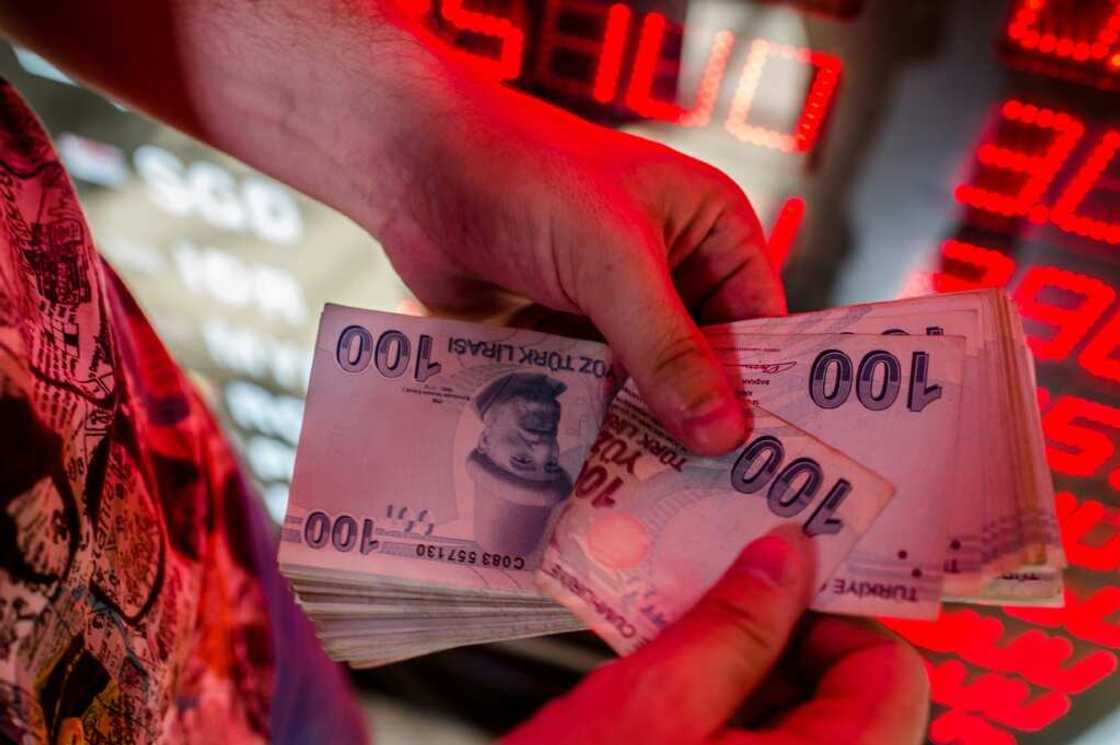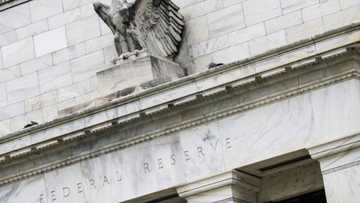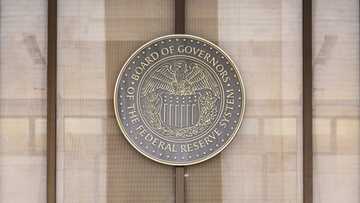Turkey central bank cuts rate despite soaring inflation

Source: AFP
Turkey's central bank on Thursday stunned the markets by lowering its main interest rate even as inflation soared to a 24-year high and looks set to climb further.
The central bank said "recession is increasingly assessed as an inevitable risk factor" as it lowered its one-week repo auction rate to 13 percent from 14 percent.
"Just insane -- with inflation at 80 percent and rising," BlueBay Asset Management economist Timothy Ash remarked in an emailed comment.
"I don't think anyone expected this."
The Turkish lira lost one percent of its value against the dollar within moments of the announcement.
Turkey's monetary policy decision contradicts the approach pursued by most other countries as they try to combat the spike in consumer prices caused by Russia's invasion of Ukraine.
PAY ATTENTION: Share your outstanding story with our editors! Please reach us through info@corp.legit.ng!
The war has sent food and energy prices soaring and forced central banks to raise borrowing costs -- even as economic growth remains anaemic.
But Turkish President Recep Tayyip Erdogan subscribes to the unorthodox belief that high interest rates cause inflation rather than rein it in.
He has fired three central bank governors since 2019 who have tried to pursue a more conventional economic course.
Election focus on growth
Turkey now has a real interest rate of negative 66.6 percent when adjusted for inflation.
This forces businesses and ordinary people to spend as much as possible before their liras lose even more value with each month.
Turkey's approach has propelled economic growth that Erdogan hopes can help him secure a third decade in power in a general election scheduled for next June.
But it has been accompanied by a sharp depreciation of the lira that has eroded living standards and pushed the financial sector to the brink of crisis.
The Turkish government has adopted a series of alternative measures to combat inflation which most economists dismiss as either insufficient or too complex and expensive to work.
These include limiting bank lending and offering state guarantees to ensure that Turks' deposits do not lose too much value over time.
It has also dug in deeply into its foreign currency reserves to try and prop up the lira's exchange rate.
These interventions have made Turkey increasingly dependent on deals with petrodollar-rich nations such as Russia and Ankara's one-time rivals in the Middle East.
Turkey reported a big jump in its hard currency holdings this month that the finance minister linked to a money transfer from an unnamed foreign country.
Media reports said Russia's state-held nuclear energy firm Rosatom had transferred billions of dollars for the construction of Turkey's first nuclear power plant.
The central bank vowed on Thursday to push ahead with its "liraisation strategy" aimed at reducing the use of foreign currency.
It also spelled out its sharp focus on economic growth.
"It is important that financial conditions remain supportive to preserve the growth momentum in industrial production and the positive trend in employment," it said.
Source: AFP





